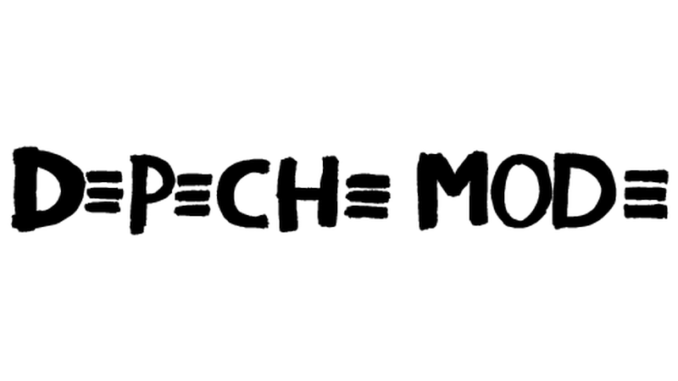
In a development that has stunned the music world, iconic synth-pop band Depeche Mode has been temporarily banned from creating new music amid a complex and contentious legal battle. Known for their decades-long influence on electronic music and their unparalleled fanbase, the band is now embroiled in a controversy centered on creative rights, licensing agreements, and disputes with management.
This unexpected situation threatens to disrupt the band’s celebrated legacy and has raised questions about artist rights and management control in the music industry.
Insiders close to Depeche Mode indicate that tensions began escalating several months ago, when conflicts emerged over ownership and creative control of the band’s music. Central to the dispute are licensing rights and royalties surrounding both past hits and any potential new material. These disagreements reportedly involve longstanding contractual obligations that are now seen as restrictive by some of the band’s members, with certain terms set to remain in place despite the band’s decades-long tenure.
Industry sources reveal that the band’s management, along with other involved parties, have been asserting influence over the band’s creative output, ultimately leading to a forced “ban” on any new music releases. While details of the agreements remain undisclosed, sources suggest that certain conditions in the contracts prevent Depeche Mode from independently releasing music without approval from all stakeholders—a stipulation that has proven to be a major point of contention.
For Depeche Mode, whose dark and introspective sound has inspired generations, this setback is particularly painful. Known for hits like Enjoy the Silence,Jesus, and Just Can’t Get Enough, the band has always strived to evolve and push creative boundaries, a mission now under threat.
News of the ban has ignited a groundswell of support from Depeche Mode’s massive fanbase, which has taken to social media to decry what many perceive as an injustice. Across platforms like Twitter, Instagram, and Facebook, fans have launched a #FreeDepecheMode campaign, calling for the band’s freedom to create music on their own terms. One fan posted, “Depeche Mode has been the voice of so many. Let them create in peace!” capturing the sentiments of thousands who believe the band deserves autonomy after decades of groundbreaking work.
The outcry isn’t limited to fans; numerous artists and industry professionals have voiced their dismay as well. Alternative and electronic artists, in particular, are speaking out, recognizing Depeche Mode as pioneers who influenced their own musical paths. Fellow musicians are stressing the importance of allowing legendary bands to maintain creative control over their work without interference.
“Depeche Mode broke ground for so many of us,” commented synth-wave artist Gary Numan. “It’s heartbreaking to see them restrained like this, especially after all they’ve given to music. They’ve more than earned the right to control their legacy.”
This high-profile situation brings to light broader concerns surrounding artist rights and creative control in the music industry, particularly for veteran acts with longstanding contracts. Many artists, especially those who rose to fame before the digital music revolution, face similar struggles over licensing rights, royalties, and creative ownership. These disputes often center on older contracts that did not account for the ways music would evolve, especially with the advent of streaming and social media platforms that changed how artists can share their work.
For Depeche Mode, this ban illustrates how the terms of older agreements can sometimes stifle artists rather than protect them. As musicians push for updated terms in their contracts, this case could become emblematic of a growing movement for legacy artists to reclaim control of their creative output.
Music industry analyst Anne Powers weighed in on the implications of Depeche Mode’s situation. “This could become a pivotal moment in music rights, not just for Depeche Mode but for artists across the board. If a band as revered as Depeche Mode can face these challenges, it sheds light on the need for industry-wide reforms that ensure artists retain control over their own creations.”
As Depeche Mode navigates this challenging situation, questions about the future of their music and legacy loom large. Some industry experts believe the band might pursue alternative solutions, such as renegotiating contract terms or exploring legal options to regain control. Alternatively, should the ban persist, Depeche Mode may consider shifting to side projects or solo endeavors to keep their creative visions alive.
In the meantime, fans are left hoping for a resolution that would enable Depeche Mode to resume their work without interference. The band’s ability to maintain their artistic integrity and connection with fans has been a significant part of their success, and supporters are eager to see them emerge from this battle with their creative freedom intact.
Despite the current ban, Depeche Mode’s cultural influence remains stronger than ever. Their songs have been celebrated for their introspective lyrics and innovative sounds, which broke barriers in the music world and brought electronic music into mainstream consciousness. This latest chapter in the band’s story adds a layer of complexity to their already rich legacy, highlighting both their resilience and the challenges faced by artists in the pursuit of creative expression.
As the music world waits for updates, the overwhelming show of solidarity among fans and musicians suggests that Depeche Mode’s impact goes far beyond their discography. This case also underscores the significance of artist autonomy, reminding fans and industry professionals alike that behind every legendary act is a creative struggle worth fighting for.
For Depeche Mode, this is more than just a legal battle—it’s a matter of safeguarding their artistic legacy and securing their right to continue shaping the musical landscape. In the words of one fan, “Depeche Mode’s music has been with us through so much. We’ll stand with them through this, too.” The world waits with bated breath, hoping to soon hear the sounds of Depeche Mode’s next era of creativity and innovation.
Leave a Reply